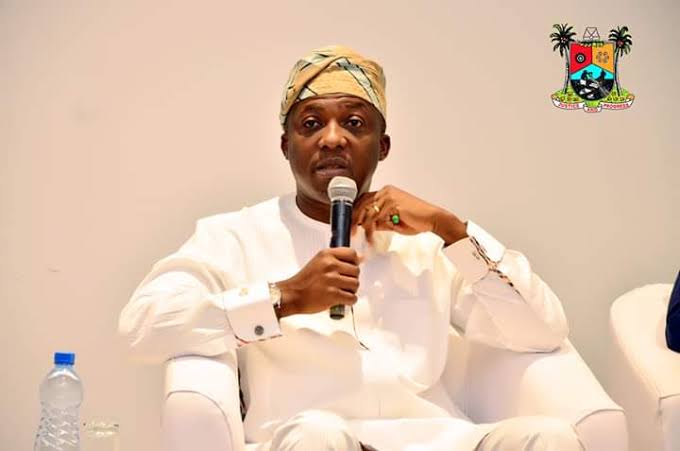BY MOTOLANI FAJI
One day in April, 2017, my phone lit up with a WhatsApp message from a friend who, at the time, rarely sent anything aside from funny videos. I was tempted to ignore the message. I clicked and saw a message in PDF format. On downloading it, it turned out to be a book, Against the Run of Play: How an Incumbent President Was Defeated in Nigeria. Written by famous newspaper columnist and former presidential spokesman, Segun Adeniyi of THISDAY, the book was presented to the public the previous day, when it also went on sale. Hackers had succeeded in breaking the security code for the online version and had started distributing the book.
I had the book; the whole frigging book-at the cost of the data expended on the download. I told my friend he was depriving the author of the dividends on his mental and financial investments. He disagreed, replying that he was motivated by the desire to make the book available to those who might find the cover price too steep. Strange argument. He added that he got it off his polytechnic alumni WhatsApp platform, an indication that it was on countless devices. I was shocked that he did not see his error. I called him to explain that those with illegal access to the book would not buy, if they had wanted to, and that the author was going to be negatively impacted. “Leave that matter,” he said jokingly. I did not find it funny.
Not knowing what else to say, I ended the call, telling myself that there was a widespread belief that intellectual theft piracy is a victimless crime. I remain convinced of that, given the glee and pride that attend the consumption and distribution of copyright-protected content. Many people told me they were reading the book for free and were delighted. The author could not have been and was not, as he took to X (nee Twitter) to express his disappointment. My attention has been re-invited to the matter by Nigerians’ reaction to the recently launched pay television platform, Metrodigital SLTV. I am delighted by the platform’s entry into the pay television sector at a time Nigerians’ pockets are hurting badly. It is projecting itself as a better value-for-money proposition than DStv, GOtv and StarTimes. You cannot but be delighted at the prospect of paying N2,500 or N5000 monthly to access 50 HD channels. On its Facebook page, SLTV claims that those channels include “10 Sports channels that show live football matches from the Premier League, Champions League, Laliga, Serie A, Europa etc”.
Very heartwarming, I have to say, especially at a time when DStv and GOtv tariffs have just gone up. It has also been unable to resist taking digs at DStv. Check: “Don’t leave your TV on channel 100 because of high subscription fees. Move on to the SLTV side of life.” It does not end there. SLTV is also advertising, very confidently, SuperSport Blitz, SuperSport Variety 1, 2, 3, 4; SuperSport La Liga, SuperSport Football and SuperSport Action in its channel line-up, channels exclusive to MultiChoice-owned DStv and GOtv.
Advertisement
SLTV already has a copycat in Horla Digital, whose Facebook advertisement, with no little chutzpah, screams: “DStv No More Subscription for Life; 155 Channels N1000”. It also lists all channels owned by MultiChoice and those it rebroadcasts. Both platforms have left Nigerians in sexual raptures. No joke. Visit the comment sections if you doubt me. The feeling some get, I suspect, is more exhilarating than the one sex gives. They are happy to see those platforms nick from another that has created and bought channels/content and has not sublicensed such to another. Both platforms and many like them have no authority, as yet, to rebroadcast the channels they are broadcasting and hurting legitimate business. I understand the desire for more affordable alternatives, but they should not come via theft, which is eroding the existing investments in the creative industry and is a disincentive to fresh investments as well as job creation. What exactly is the National Copyright Commission doing?
It is more shocking that in an age in which countries have realized the ruinous effect of intellectual property theft, the Nigerian government is indifferent to what carries a whiff of. One gets the feeling that the government which, to be frank, teems with stuntmen, is happy about the current state of affairs. Were SLTV a truly game-changing domestic business rather than a gamer of the system, the kind of government support it got at launch would have been appropriate. But to see government officials crow about a freebooting entity is another thing. I will get to that in a bit. We had a similar case in 2017, when the now defunct TStv launched to national delirium, advertising channels to which it had no rights in the country and broadcasting such before it was run out of town by its own hubris and content owners.
One wonders how the government hopes to persuade foreign and local investors to put their money in the domestic creative economy when they can be parasitized by just anybody. That exactly is what Metrodigital, SLTV’s parent company, Metrodigital; Communication Trends Limited (CTL), CANTV and other platforms under the Association of Cable Operators of Nigeria (ACON) have been doing to DStv, GOtv, StarTimes and the Qatari broadcaster, BeIN, for years. ACON, in 2019, claimed that the activities of its members are to make pay television services affordable to Nigerians, who they claim cannot afford DStv, GOtv and StarTimes.
Advertisement
In 2009, ACON took to the defunct HiTv court for resisting the illegal redistribution of its content, especially the English Premier League, to which it had exclusive broadcast rights. ACON approached the courts, arguing that HiTv was able to wrest the broadcast rights from DStv because it told the rights owners that it was going to sublicense the content to other broadcasters in the country. I do not know if HiTv published its broadcast contract for ACON to see what it contained, but I doubt. Let’s move on, though. HiTv’s response was dismissive, with Toyin Subair, the promoter, saying: “We have continuously offered them the rights, but they don’t want to pay nor give bank guarantee, as we gave, or even run a proper business. Rather, what they operate is a one man-business without structure. They cried for over fifteen years that nobody could do the business but HiTv has proven them wrong and now they’re talking about courts. Did they ever take DStv to court?”
Well, ACON has since taken DStv (MultiChoice) to court. Metrodigital, a prominent member of ACON, also took MultiChoice to court. Four years ago, it approached a Federal High Court in Port Harcourt, Rivers State, after MultiChoice turned down its request for the sub-licensing of some of its channels on the ground that it does not own the rights to the channels and programmes for which the request was made. The case was dismissed on the ground that Metrodigital was unable to contradict MultiChoice’s claim that it does not own the rights to the content requested. Metrodigital built its case on the 6th National Broadcasting Code, which it claimed bars a single broadcaster from having exclusive rights to major sports content in Nigeria.
The 6th NBC Code provoked disgust from the advertising and broadcast industries as well as and content creators because of legality of its amendment to intellectual property ownership as per the Constitution, Copyright Act, and international treaties to which Nigeria is a signatory. For example, an action filed by a journalist, Femi Davies, against the NBC before Justice Lewis-Allagoa of the Federal High Cour resulted in the nullification of the code. The court held that NBC lacks the statutory power to prohibit exclusive arrangements and compel the sub-licensing of privately acquired broadcasting rights. As such, it held that the amendment is in violation of the provisions of the Constitution and the Copyright Act.
The court also held that the NBC acted beyond its powers in seeking to regulate advertising practice contrary to the provisions of the extant Advertising Practitioners (Regulation) Act 2004 and further that an acquisition of exclusive rights to broadcast a particular programme is an investment for returns and no one should be forced to surrender the same. In declaring it ultra vires, incompetent, and null and void, it also granted a perpetual injunction restraining the NBC from further implementing the Code. The implication of the court decision, to my mind, is that whatever innovation introduced by the amendment is inapplicable and cannot be enforced to command compliance with the same by affected operators or content creators.
Advertisement
Metrodigital approached the Court of Appeal which, on 13 July, 2022, delivered a ruling in which it directed the NBC, second respondent in the suit, to, within 21 days, set up a panel to look into Metrodigital’s complaints. The court dismissed the reliefs sought by Metrodigital seeking to compel MultiChoice to sub-licence some channels to it.
Almost two years later, that panel, if it was set up, has not issued a report communicating its decisions to the parties or the public. It is why I am surprised that Metrodigital is openly running its shop with goods nicked from another man’s shop and inviting one and all to come buy at rock bottom prices. What fees has it paid to the content owner? What agreements does it have with the owners of the channels it is selling to its subscribers, who are cheering lustily? Prospective investors are watching and they are unlikely to be on a queue to bring their money here.
Faji, a content creator, writes from Port Harcourt.
Views expressed by contributors are strictly personal and not of TheCable.
Add a comment






